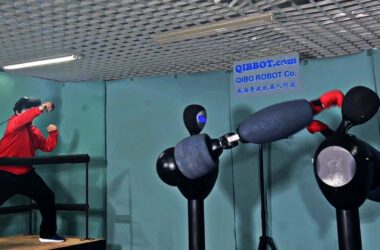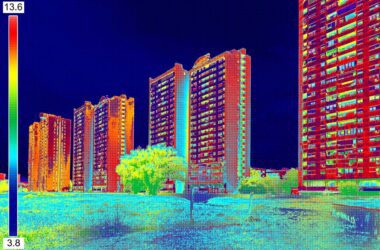A group of four senators is advocating for the implementation of a novel legislation aimed at prohibiting the utilisation of artificial intelligence technologies for the purpose of generating replicas of individuals’ images and voices. This proposal arises from apprehensions over the necessity to safeguard artists against the rapid advancements in technology.
According to the four senators, the proposed legislation known as the Nurture Originals, Foster Art, and Keep Entertainment Safe Act aims to impose limitations on the creation and dissemination of AI-generated replicas without individuals’ explicit approval.
Senator Chris Coons, a co-sponsor of the bill, expressed the need for policies that would effectively prevent unauthorised reproductions of voice and likeness, as generative AI continues to expand artistic possibilities.
On Thursday, a Democratic representative from Delaware expressed the view that it is necessary for Congress to strike a balance between individuals’ First Amendment rights to freedom of expression and the implementation of new regulations pertaining to artificial intelligence (AI). The representative further highlighted that the NO FAKES Act is an endeavour aimed at establishing unambiguous guidelines in this regard.
According to the office of Senator Marsha Blackburn, the NO FAKES Act proposes to hold individuals accountable for any harm caused by their creation and dissemination of AI-generated replicas. According to the draught legislation disclosed by the Tennessee Republican, each offence would incur a minimum penalty of $5,000.
In a statement, Ms. Blackburn asserted that songwriters, actresses, and the highly skilled creative community should be granted the entitlement to possess their name, image, and likeness (NIL). This legislation represents an initial measure aimed at safeguarding our creative community, mitigating the unauthorised appropriation of an individual’s NIL by AI models, and prioritising the recognition of these rights within the legal framework.
The labour leaders within the entertainment business express their support for the senators’ endeavour. The commendable efforts of Mr. Coons, Ms. Blackburn, and Senators Thom Tillis, a Republican from North Carolina, and Amy Klobuchar, a Democrat from Minnesota, were acknowledged by Fran Drescher, the president of SAG-AFTRA.
According to Ms. Drescher, the amalgamation of a performer’s vocal abilities and physical presentation is an integral aspect of their distinctive identity, and it is deemed inappropriate to exploit these elements without obtaining their consent. The significance of consent cannot be overstated, and it is commendable that Senators Coons, Blackburn, Klobuchar, and Tillis are actively engaged in efforts to empower performers by establishing mechanisms for redress and facilitating the removal of objectionable content.
The proposed legislation is expected to encounter examination and analysis from proponents of digital speech who have actively opposed the control of content on social media platforms due to apprehensions regarding the potential curtailment of online expression.
According to Ms. Blackburn’s office, the bill incorporates provisions that grant exemptions for depictions of individuals in creative works that are considered safeguarded under the First Amendment. These exemptions encompass parodies, criticisms, commentaries, sports broadcasts, and other similar forms of expression.
FAQs
- What is the primary objective of the NO FAKES Act?
- The act aims to impose limitations on the creation and dissemination of AI-generated replicas of individuals’ images and voices without their explicit approval.
- Who are the senators advocating for this legislation?
- The senators include Chris Coons, Marsha Blackburn, Thom Tillis, and Amy Klobuchar.
- What penalties are proposed for violations under the NO FAKES Act?
- The draft legislation suggests a minimum penalty of $5,000 for each offence related to the unauthorized creation and dissemination of AI-generated replicas.
- How does the act aim to balance First Amendment rights?
- The act seeks to strike a balance between individuals’ First Amendment rights to freedom of expression and the implementation of new AI regulations. It includes provisions granting exemptions for certain forms of expression considered protected under the First Amendment.
- What are the views of the entertainment industry regarding this legislation?
- Labour leaders within the entertainment business, including Fran Drescher, the president of SAG-AFTRA, have expressed support for the senators’ efforts, emphasizing the importance of consent and the right to one’s distinctive identity.







